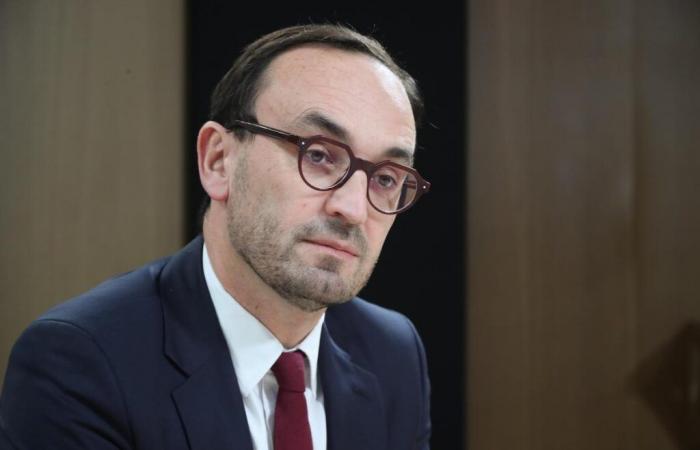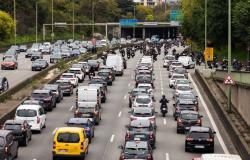AWhile Michel Barnier planned to reduce the deficit to 5% in 2025, Eric Lombard, the Minister of the Economy, is aiming for a target between 5 and 5.5%. Does this leave room for maneuver?
The public finance situation is still difficult. That there is space for negotiation, yes. But we have an imponderable: we must continue to reduce our deficit after years of “whatever it takes” during which we protected a lot. In the agreements that will be reached, in particular with the PS, there must be reasonable demands compatible with reducing the deficit.
The future finance bill carried by François Bayrou would be based on 50 billion euros of effort. This is 10 billion less than the previous one. Is it significant?
It’s a lot. These 10 billion represent part of what was planned in Michel Barnier’s budget for the contribution of large companies to this recovery effort, i.e. 8 billion. But to reduce the deficit, we must make savings and seek other revenues such as taxes on share buybacks.
For the PS, non-censorship of the government will require the suspension of pension reform. Is this compatible with this imperative to control public spending?
I am not in favor of a suspension, because when you suspend, you never know when you will start again. It is better to maintain the reform and discuss within a framework. Our pension plans, despite the 2023 reform, are already in deficit. The president of the COR [Conseil d’orientation des retraites, NDLR] indicated that the situation was going to deteriorate by 2030. We can discuss technical elements, such as arduousness, interrupted careers for women, but we cannot further aggravate the situation, at the risk of threatening the regime by distribution.
Is saving money also the meaning of your proposed anti-fraud law?
I will present it in the Hemicycle on January 27. It aims to fight against public aid fraud and eco-delinquency, that is to say the misappropriation of all aid dedicated to the environment. Today, the State pays a little more than 20 billion euros in aid per year to change your car, renovate your home, train, etc.
ANALYSIS. Islamist terrorism in France: “We are still in an attack emergency”
Ten years after the “Charlie Hebdo” attack, the jihadists have not given up their weapons. The recent strikes in Syria against Daesh positions prove this. Likewise, the emergence of the new master of Damascus, al-Jolani, formerly of al-Qaeda, may be worrying. Decryption with Marc Hecker, specialist in terrorism and deputy director of the French Institute of International Relations (Ifri)
“Tracfin has identified potential misappropriation of 400 million euros from MaPrimeRénov’”
How much do these embezzlements amount to?
Tracfin, the anti-money laundering service, has identified potential misappropriation of 400 million euros from MaPrimeRénov’. The Court of Auditors has identified potential misappropriation of energy savings certificates worth 450 million euros. As we spend a lot to help, there is a risk of misappropriation. This bill aims to hit hard against those who embezzle money by increasing sanctions and strengthening the powers of state services.
What will your proposed law improve?
It will allow an organization to suspend the payment of aid when there is doubt, which is not possible today. Because, very often, this aid is paid to short-lived businesses which disappear. This text will also allow state services to exchange data. When Tracfin has information, it cannot share it with the Ministry of Ecology which pays MaPrimeRénov’. Tomorrow it will be possible. This should allow us to recover or avoid losing 700 million to 1.6 billion in embezzlement of public money.
You will also chair a commission of inquiry into the elections. What is it about?
This commission was created at the request of LFI on the organization of the elections. The objective is to look at several fundamental subjects of democratic life: registration and removal from the electoral lists, or how do we increase participation? We will look at electronic voting, violence in campaigns and their financing. The rapporteur will be LFI deputy Antoine Léaument.
Emmanuel Macron opened the door to several referendums. What possible topics?
The referendum is part of the prerogatives of the president. In other countries, it is easier to return to voters to decide on certain issues. A territorial reform would be a good subject for a referendum.
Is this a way for the head of state to keep control?
In this period when the Assembly is having difficulties, turning to the French is a way of moving forward. The worst thing for us would be to fall into immobility.






